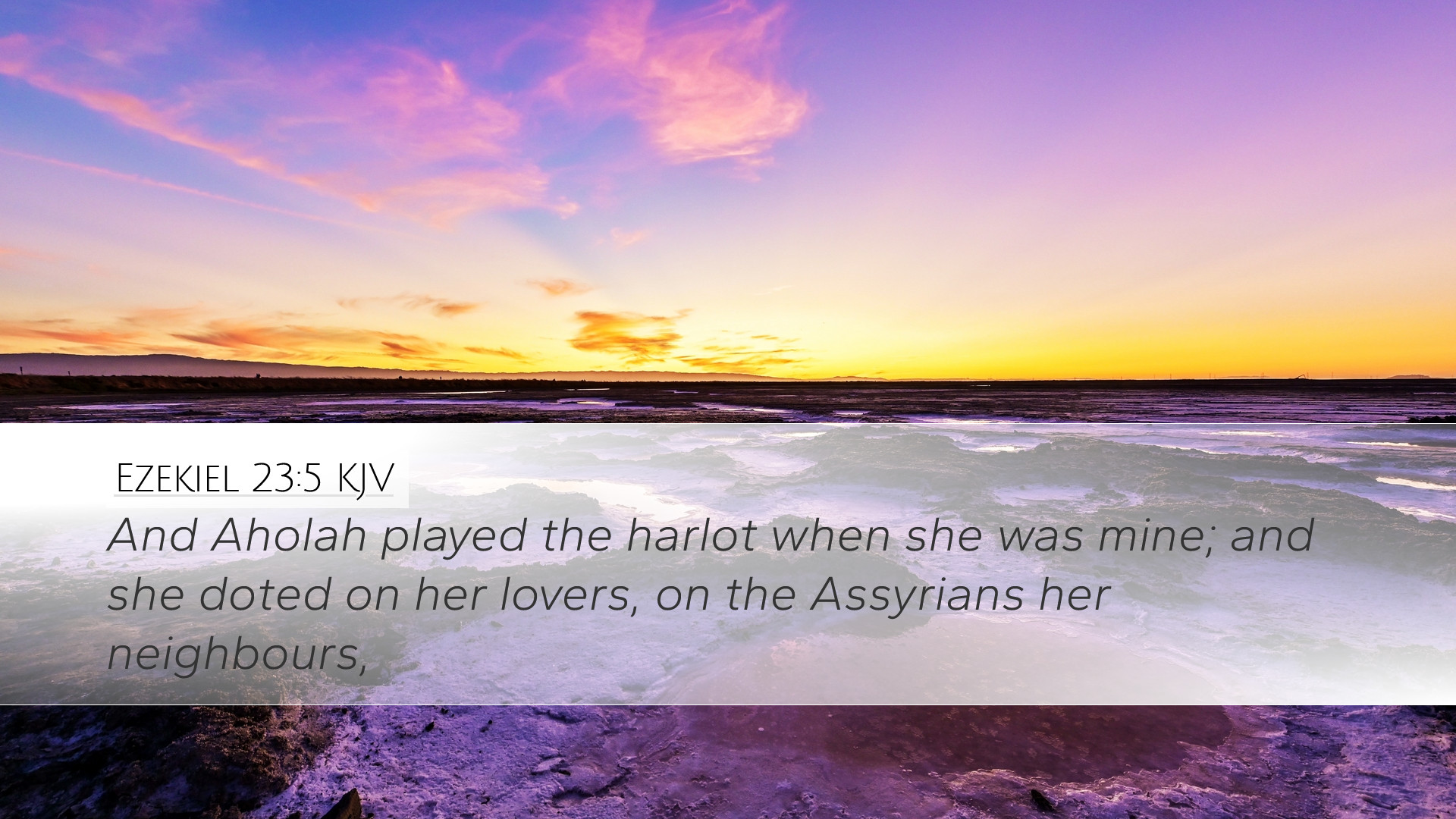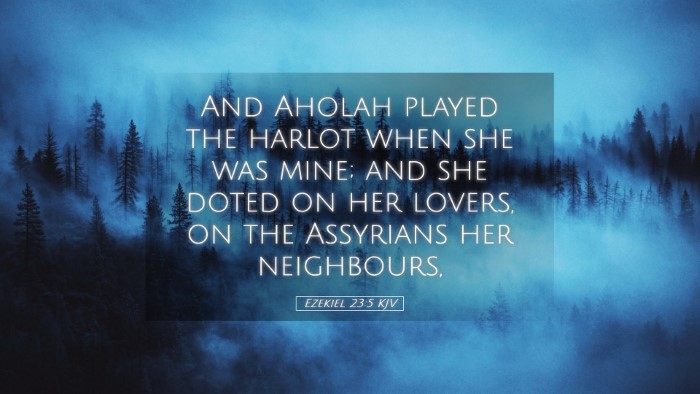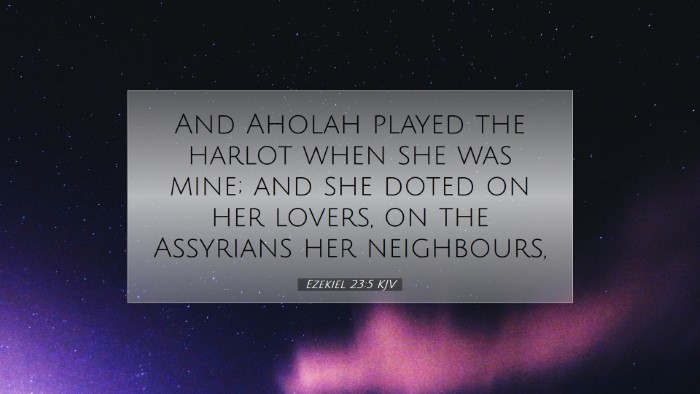Ezekiel 23:5 - Commentary and Insights
Bible Verse: "And Aholah played the harlot when she was mine; and she doted on her lovers, on the Assyrians her neighbors."
Introduction: Ezekiel 23 is a vivid and poignant chapter that employs strong imagery to depict the unfaithfulness of Israel and Judah through the metaphor of two sisters, Aholah and Aholibah. This commentary focuses on Ezekiel 23:5, highlighting the significance of Aholah's actions and the implications of her unfaithfulness. The insights synthesized from public domain commentaries provide a comprehensive understanding of this passage for pastors, students, theologians, and Bible scholars.
1. Contextual Background
Ezekiel prophesied during a time of great turmoil for Israel, as the Babylonian exile loomed on the horizon. The chapter serves as a metaphorical indictment of the spiritual adultery of the northern kingdom (Aholah, representing Samaria) and the southern kingdom (Aholibah, representing Jerusalem). Aholah's reference to Assyria highlights Israel's alliances with foreign powers, which led to betrayal of their covenant with God.
2. Analysis of Key Terms
- Aholah: Represents the northern kingdom of Israel. The name means "her tent," symbolizing the place where God dwelt with His people but now associated with harlotry.
- Harlot: A symbol of spiritual and moral unfaithfulness. The repeated metaphor of harlotry effectively illustrates the depth of Israel’s infidelity towards God.
- Assyrians: The neighboring kingdom that symbolizes oppression and moral corruption. By forming alliances with Assyria, Aholah illustrates a rejection of reliance on God and faithfulness.
- Lovers: Represents the nations and idols that Israel pursued, illustrating their spiritual adultery. The pursuit of foreign alliances is portrayed as a form of worship and dependence that betrays their covenant with Yahweh.
3. Theological Themes
- Unfaithfulness: Aholah’s actions serve as a mini-narrative of Israel's broader history of turning away from God. The metaphor of playing the harlot conveys the seriousness of spiritual rebellion.
- Covenant Relationship: The idea that God has exclusive rights over His people is central. The breach of this covenant through political alliances is seen as profound disloyalty that incurs divine judgment.
- Judgment and Restoration: God’s warnings through prophets like Ezekiel foreshadow the impending judgment. However, underlying this is the hope for eventual restoration after repentance.
4. Commentary Insights
Matthew Henry
Matthew Henry emphasizes the gravity of Aholah's unfaithfulness, noting that her actions represent a "willing sin against God." He elaborates on how Israel fell into the trap of seeking security from worldly alliances rather than trusting in God's sovereignty. His commentary stresses that such behavior is an affront to God's glory, as it splinters the intimate relationship intended by the covenant.
Albert Barnes
Albert Barnes provides a detailed analysis of Aholah, describing her initial position as God’s possession and the consequences of her lover's affections. He notes that in seeking after Assyria, she turned to "defile" herself, showcasing the tragic outcomes of forsaking divine counsel for political gain. Barnes highlights how this text reflects Israel’s persistent temptation to compromise spiritual integrity for temporal safety.
Adam Clarke
Adam Clarke presents an exploration of Aholah's motivations, suggesting that her desire for the powerful Assyrians stemmed from a lust for power and prestige. Clarke argues that this passage serves as a warning for all believers about the dangers of spiritual infidelity and the allure of worldly desires. His insights call attention to the relevance of this warning for contemporary audiences, reminding them of the universal struggle against idolatry of the heart.
5. Implications for Modern Readers
The vivid imagery encapsulated in Ezekiel 23:5 provides timeless lessons on fidelity to God amidst societal pressures. In a world where the pursuit of security often leads to moral compromises, this scripture serves as a reminder of the necessity of remaining steadfast to God’s commandments. For pastors, this verse underscores the need to shepherd congregations towards faithfulness, warning against the allure of cultural idols. Students and scholars are encouraged to engage with the text through the rich theological and historical frameworks provided by the commentaries.
Conclusion
Ezekiel 23:5, while rooted in a specific historical context, transcends its time to speak to the heart of God’s people throughout the ages. The commentary from Matthew Henry, Albert Barnes, and Adam Clarke amalgamates a deeper understanding of the unfaithful actions of Aholah and broadens the implications of this narrative for both individual believers and communal faith. Engaging with this scripture invites a reflection on faithfulness, covenant loyalty, and the pursuit of God amidst the distractions of the world.


